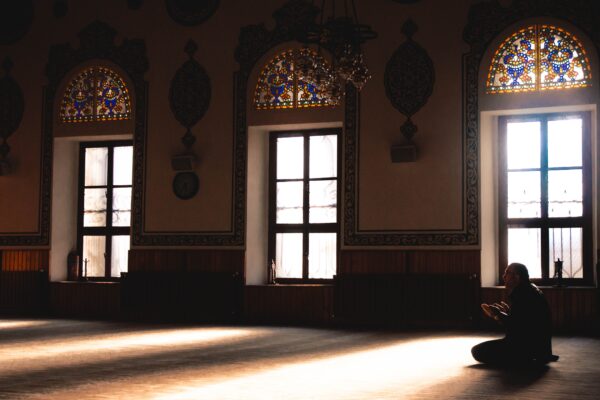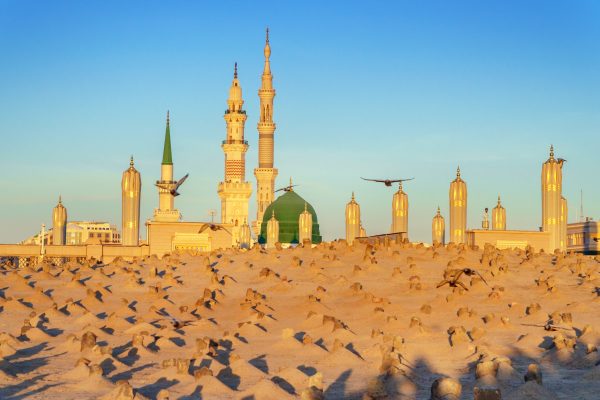You are not alone. Allah’s Messenger, upon him be peace, said: “Allah the Exalted says: ‘There is no reward other than the Garden for My believing slave who, when a loved one is taken in death from him, then sincerely seeks Allah’s reward.’”
You are not alone. Allah’s Messenger, upon him be peace, said: “Allah the Exalted says: ‘There is no reward other than the Garden for My believing slave who, when a loved one is taken in death from him, then sincerely seeks Allah’s reward.’”
The beauty of Islam is that there are clear guidelines for how we live every part of our lives. When we are born, our parents gently whisper the call of prayer in our ears. When we leave this world, our community gathers to wash our body, shroud it, bury it and pray over it in a prayer we call janazah.
Every step of the funeral rites of a Muslim is done as a community. In essence, the way we grieve is about gathering as a community.
How Do Muslims Typically Grieve?
Traditionally, under normal circumstances, Muslims bury the departed as soon we can. We follow these steps for anyone in our community who has passed away:
- Collective bathing of the dead body (ghusl)
- Wrapping the body in a white cloth that is cotton or linen
- Funeral prayer (janazah)
- Burial of the dead body in a grave
- Positioning the deceased so that the head is faced toward Mecca
When we hear of someone passing away, we immediately say:
Inna lillahi wa inna ilayhi raji’un (To Him we belong and to Him we return).
What Happens When We Can’t Grieve Together?
The COVID-19 pandemic has made the process of gathering as a community to grieve nearly impossible, and it isn’t just the Muslim community facing these issues. With shelter-in-place orders due to the coronavirus, no religious communities can gather in groups to pray, funerals can’t be conducted in groups, and even collecting the bodies of loved ones who have passed away from COVID-19 is a challenge.
According to National Geographic: “As coronavirus ravages communities across the globe, rising fatalities and social distancing are upending memorials and sacred rituals around death and dying. That is transforming where and how the living grieve, altering the ways we process loss.”
Muslim Communities Are Forced to Adapt to New Grieving Rituals
The Muslim community has had to shift how we come together during a time of loss. In the exceptional circumstances caused by the COVID-19 pandemic, alternatives like tayammum (using clean earth) are being used to purify the bodies of Muslims who have passed away.
How Can Muslims Cope with Losing Loved Ones?
Having to shift how we deal with the loss of a loved one during a pandemic isn’t easy. Social distancing has made it exceptionally hard for those of us grieving the loss of a loved one.
Traditionally, our Ummah has used communal prayers like janazah and visits to the sick to bring solace to families. How can we be comforted now?
Digital Support for Muslims Grieving
In the absence of funeral services and community support, the Zakat Foundation of America has created a Memorial Wall as a way to honor our loved ones lost to COVID-19 and draw prayers from around the world.
If you, or someone you know, is mourning the loss of a loved one amid this lockdown, we invite you to pay tribute to the departed. Share your thoughts, feelings, prayers, commemorate their accomplishments, acknowledge their challenges, and remember the difference they made in the lives of those around them. We pray this brings some solace to those grieving at this time.
For anyone in our community who needs more emotional support, Khalil Center, a Zakat Foundation project, offers FREE support such as web therapy, webinars, and support groups. Let’s heal together as a community.
You are not alone. Allah’s Messenger, upon him be peace, said: “Allah the Exalted says: ‘There is no reward other than the Garden for My believing slave who, when a loved one is taken in death from him, then sincerely seeks Allah’s reward.’”





